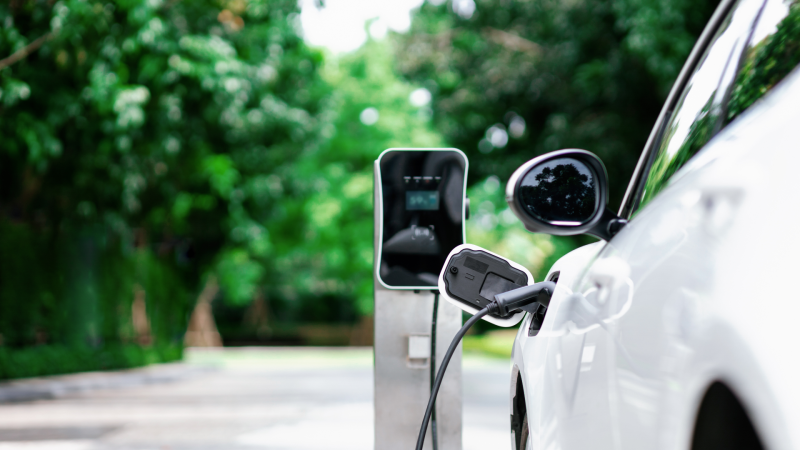Electrical vehicle purchases in California dropped significantly in the second half of last year, for the first time in a decade. It’s unclear if this is a trend or just a blip, but some potential EV buyers say that they’re holding off because of concerns over public charger access and reliability. Things may be improving: California approved a $1.9 billion dollar investment in EV charging infrastructure last month, which will bring 40,000 new chargers online – including in rural areas. We’ll talk about what California needs to do to meaningfully expand its EV charging infrastructure ahead of its 2035 ban on the sale of new gas-powered cars.
In Transit: How California is Addressing EV Charging Infrastructure Woes

Electric vehicle plugged in with EV charger device. (Ralf Hahn/Getty Images)
Guests:
Ethan Elkind, director of the Climate Program at the Center for Law, Energy and the Environment, UC Berkeley School of Law; host, the Climate Break podcast.
Russ Mitchell, automotive editor, Los Angeles Times - He is based in Berkeley and covers the automotive industry.
Terry Travis, managing partner, EVNoire - a Mobility Consulting Group that works to integrate and amplify diversity, equity, and inclusion in the electric transportation sector.
Sponsored